
KUALA LUMPUR, Feb 8 — Since time immemorial, Malaysians have been known to hunt for cheap eats, and they would have no trouble finding some at places like the food court at the Subang Jaya branch of the Mydin hypermarket.
There, a major draw was now its rows of food stalls, each displaying large posters of their “Menu Rahmah” dish for RM5.
At Kampung Selera, one of the stalls that sold “nasi campur” or Malay for economy rice, those opting for Menu Rahmah have a choice whether to have their white rice served with either a keli or catfish, sardine or chicken, with any one vegetable dish.
“In a day, I usually get 100 or more orders for the catfish, 60 orders for sardine and another 60 for the chicken dish,” stall owner Ishaq Qin told Malay Mail.
“The demand is quite good,” he added.
He said he usually has five or six types of vegetable dishes that Menu Rahmah customers can choose from.
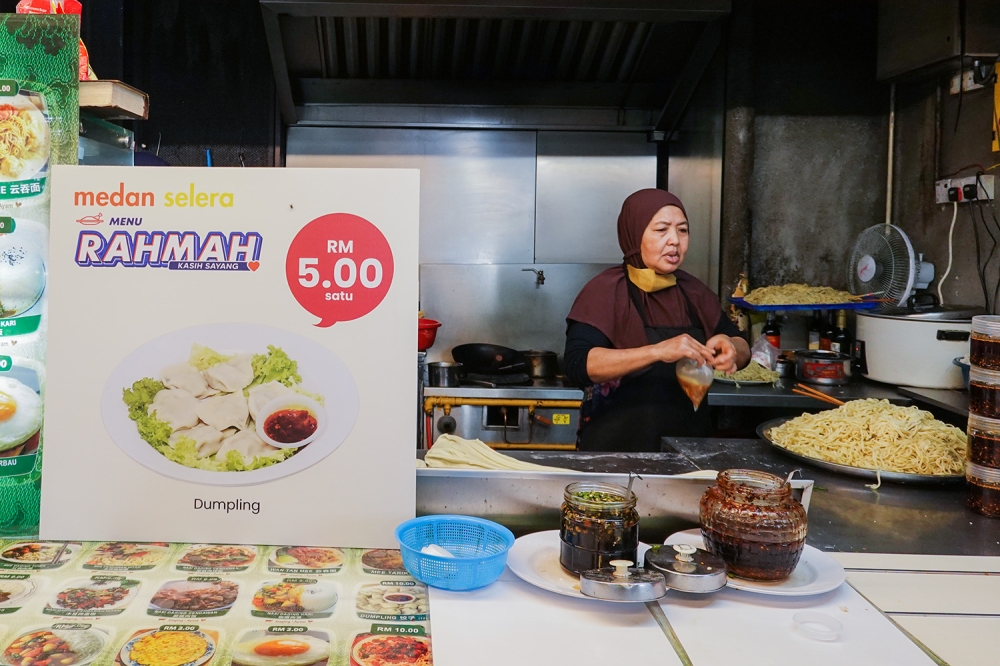
Two stalls away, another stall he also owns that offered Chinese Muslim food had dumplings served in soup as its Menu Rahmah item.
A stall about 10m away offered a plate of chicken rice instead.
“We get around four to five hundred orders a day for it,” one of the foreign workers, a tall man of South Asian origin, said.
But despite the high number of orders for the dish, he said customers also opt for the other items offered by the stall.
Menu Rahmah was initially a programme spurred by the Ministry of Domestic Trade and Cost of Living for the hardcore poor, which targeted the participation of 15,000 premises nationwide.
Last month, its minister, Datuk Seri Salahuddin Ayub, said around 12,000 premises have already offered the menu, including restaurants affiliated with the Malaysian Indian Restaurant Owners Association (Primas), the Malaysian Muslim Restaurant Owners Association (Presma), Malaysia Singapore Coffee Shop Proprietors General Association (MCSPGA), and Mydin supermarket outlets nationwide.
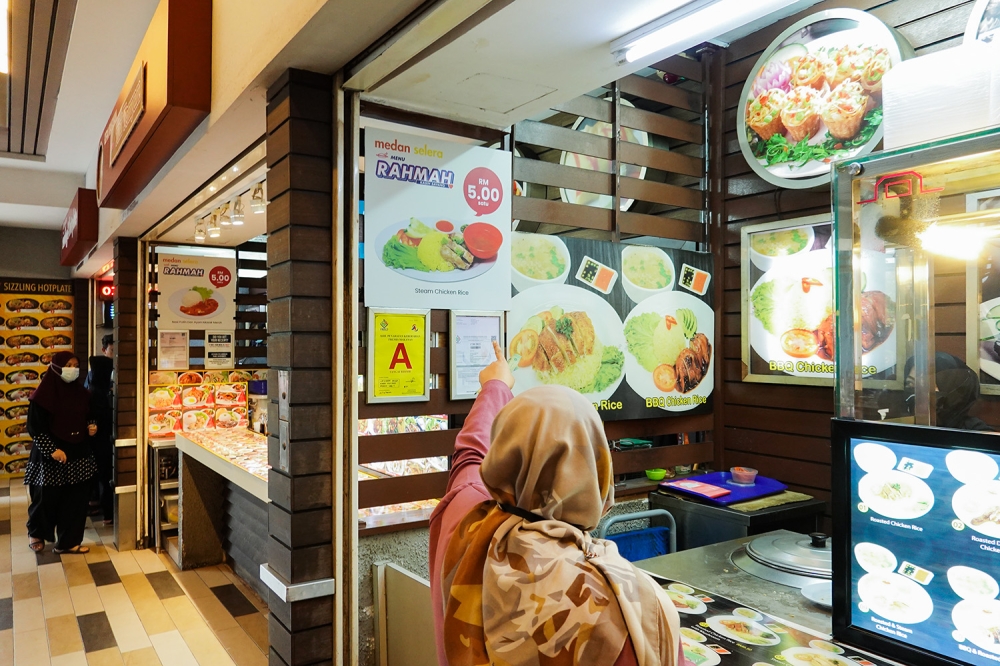
Malay Mail’s visit to the food court in Mydin — which is one of the initiative’s first partners and most high-profile advocate — found that the dishes that fell under the menu was a hit with the customers regardless of their financial status, a testament to Malaysians’ eagerness to save money where they can amid a challenging economy.
One of Ishaq’s customers, a civil servant who gave her name as Nurul praised the initiative, admitting that the dishes offered were “pretty good”.
“I bring my children here to eat their lunch after school,” the 47-year-old said.
“For RM5 you can get fish, vegetables and rice,” she gushed.
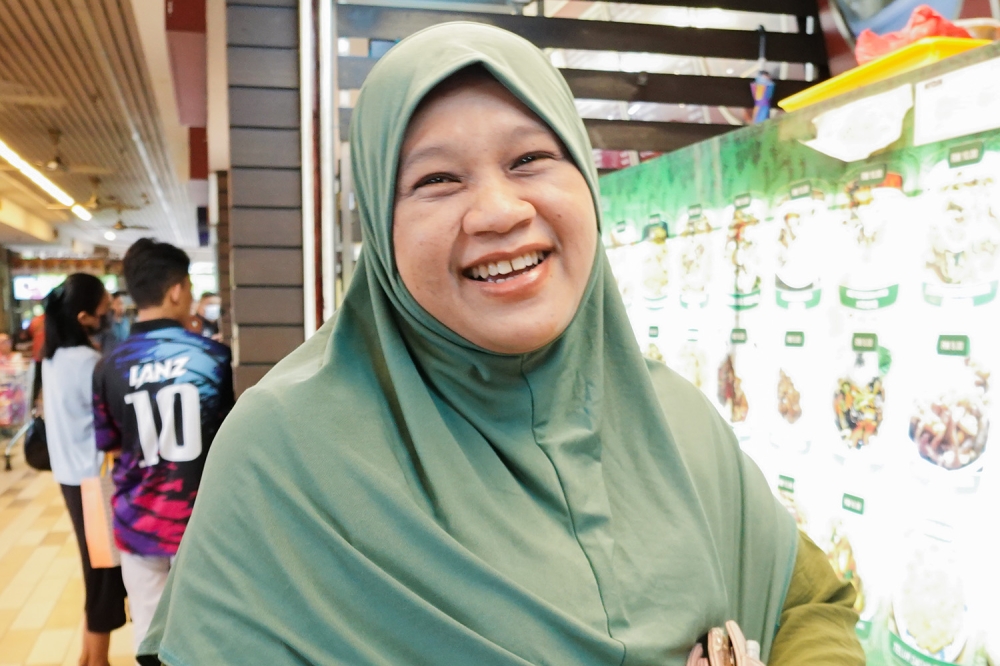
A frequent customer of the food court, Nurul also goes around to the other stalls for their Menu Rahmah offering.
Another frequent customer was Marina Kamaroon, who had just purchased six packets of the rojak offered under Menu Rahmah in another stall.
“[The initiative] can save you some money, especially with the economy as it is right now,” the 50-year-old babysitter said.
It was her first time purchasing the dish under the Menu Rahmah programme, which she said was “worth it” as the rojak was usually priced at RM6.
“I usually buy the rojak here but it’s my first time today buying it as part of the Menu Rahmah,” she said.
Saari Ahmad, 61, meanwhile had just gone to Mydin Subang Jaya to check out the Menu Rahmah offerings.
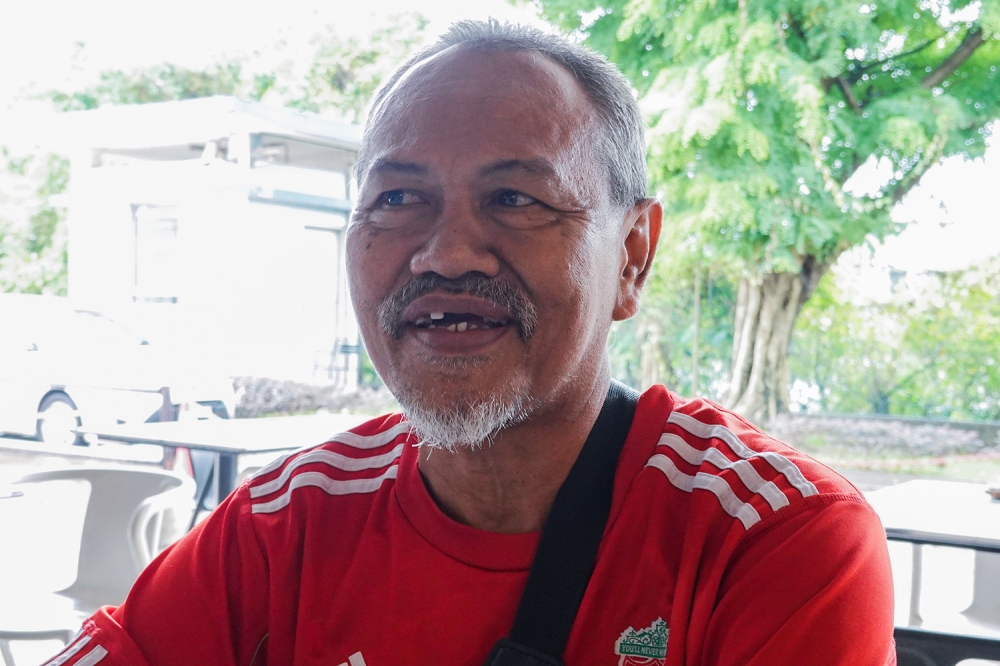
When asked what he thought about the initiative, he said: “Thank god, I think it’s really good.”
The business owner said that if he felt the food tasted good for its price, he would love to see more of the programme.
“It’s my first time here. I want to taste test if the cooking is good first,” he said, adding that the price point is just nice considering soaring living costs.
Minister Salahuddin has since said the programme would be extended to public higher education institutions after Aidilfitri, starting with 20 institutions in the Klang Valley.
The sustainability of the programme under the new Pakatan Harapan-Barisan Nasional coalition government, however, has been questioned, as Salahuddin had previously been reported saying the government was trying to make it a “zero-budget initiative”.
Salahuddin said he would propose at the next Cabinet meeting that participants receive possible incentives, such as reduced rental rates and easier applications for migrant labour.
A similar programme was introduced under the Datuk Seri Najib Razak administration called “Menu Rakyat 1Malaysia” in 2012, promising breakfast below RM2 and lunch below RM4.
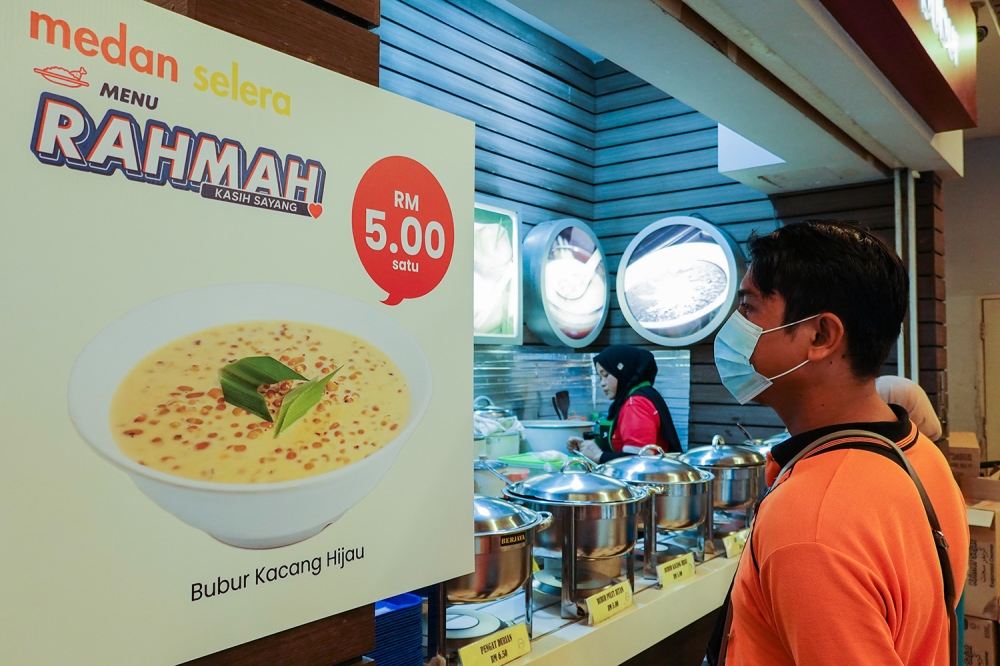



No comments:
Post a Comment
Note: Only a member of this blog may post a comment.